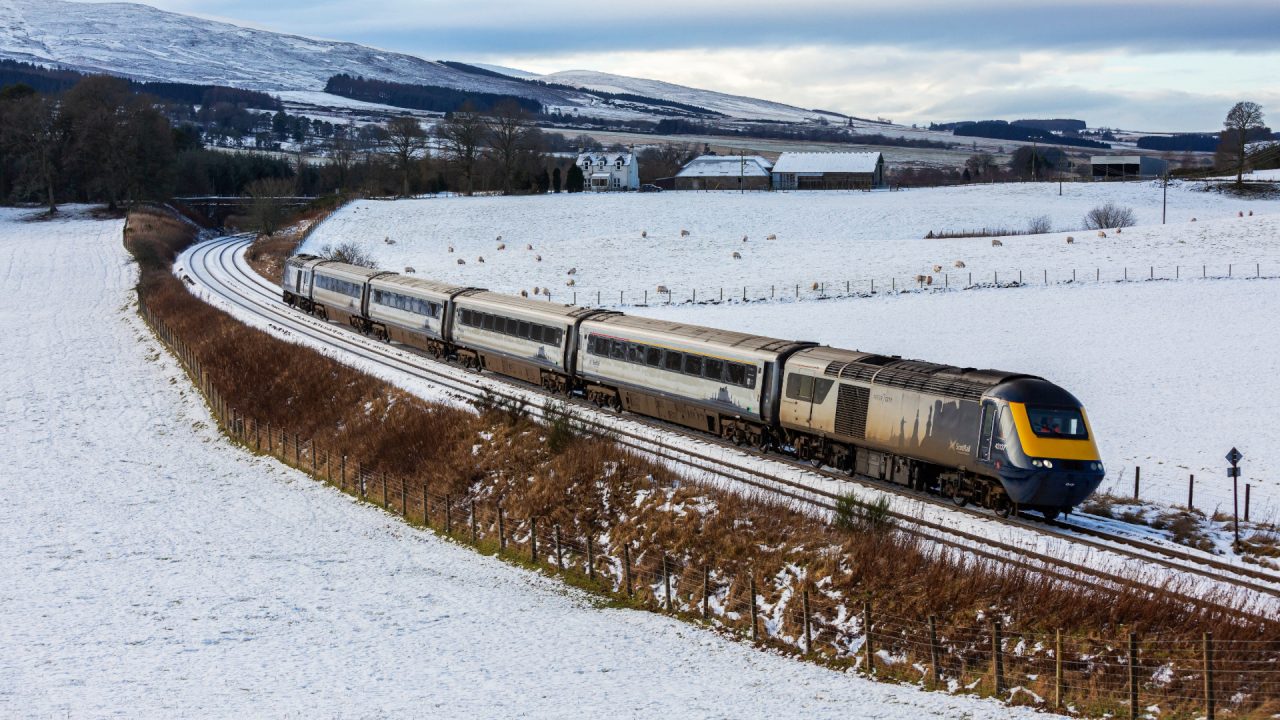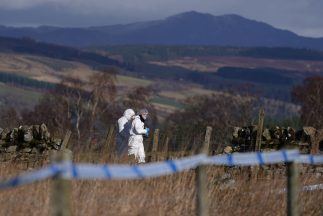Fresh industrial action has seen railways across Scotland grind to a halt as a long-running pay dispute with Network Rail continues.
Only a fraction of ScotRail services are running on Wednesday after workers began the first of two 48-hour walk outs on Tuesday.
It is the second day of five that will see a skeleton service on a limited number of routes across the central belt, Fife and Borders between December 13 and December 17 – with trains running across just 12 routes.
The dispute, which does not involve ScotRail staff, has seen disruption across the UK affecting Network Rail, which maintains railways, and 14 train operating companies.
Passengers have been urged to only travel if “absolutely necessary”.
Which ScotRail services are running?
The services will start at 7.30am and will end at 6.30pm each day.
The services running are:
Edinburgh – Glasgow via Falkirk High: Two trains per hour
Edinburgh – Helensburgh: Two trains per hour
Edinburgh – Glasgow via Shotts: One train per hour
Edinburgh – Cowdenbeath: Two trains per hour
Edinburgh – Tweedbank: Two trains per hour
Edinburgh – North Berwick: One train per hour
Edinburgh – Larbert: One train per hour
Glasgow – Larbert: One train per hour
Glasgow – Falkirk Grahamston: One train per hour
Glasgow – Hamilton/Larkhall: Two trains per hour
Glasgow – Lanark: Two trains per hour
Milngavie – Springburn: Two trains per hour
Final services will depart well before 6.30pm, ScotRail warned, with customers urged to ensure they know when their last train will run.
Further strikes over Christmas
This week’s 48-hour walk-outs precede further action being taken in December which looks set to cause significant disruption over the Christmas period.
RMT members working for Network Rail will also strike from 6pm on Christmas Eve until 6am on December 27.
Scotland’s transport minister Jenny Gilruth urged the UK Government to take a “different approach” in seeking to resolve the dispute.
“While this is not a matter in which the Scottish Government has any locus, I urge the (UK transport secretary Mark Harper) to take a different approach and work with the trade unions to secure a railway that benefits users, staff and taxpayers,” she said.
“Scotland has embraced the concept of fair work, so it is disheartening to see our own progressive activity in this regard being put at risk by the inevitable wider consequences of the UK Government’s ill-thought out, hasty and hostile approach to industrial relations.”
Gilruth also warned against plans which she suggested could involve compulsory redundancies for Network Rail staff.
She continued: “We do not welcome UK Government plans for so-called radical rail reform agenda which have yet to be explained to Scottish ministers in any detail, but which appear to be a guise for compulsory redundancies in the Network Rail workforce, including in Scotland.
“The Scottish Government remains committed to our long-standing policy of no compulsory redundancies.
“However, the last three secretaries of state for transport have failed to engage in any meaningful conversations on these matters – an approach that is quite unsatisfactory given the seriousness of this Network Rail dispute.
“We will continue to work collaboratively with the trade unions in Scotland to make public ownership of Scotland’s railway a success.”
Network Rail chief executive Andrew Haines insisted that RMT must “stop playing politics”.
“The RMT leadership needs to think long and hard about what to do next. Further strike action will cause further misery for the rail industry and for their members who will lose pay,” said Haines.
“This news is especially frustrating given that we learnt today that colleagues represented by Unite union have accepted the very same offer put to RMT members.
“The RMT are the outliers here. They need to stop playing politics and work with us to bring this dispute to an end.”
A spokesperson for the Department for Transport said that it had “played its part” in trying to resolve the dispute.
“The Government helped facilitate a fair and improved offer, delivering a pay increase more generous than those in the private sector and guaranteeing no compulsory redundancies,” they said.
“The significant proportion of RMT members who voted to accept this, despite being instructed not to, clearly recognised that.
“Unite members have accepted the very same offer and the TSSA leadership has also recommended its members to accept it.
“There is clearly an appetite amongst the workers themselves to strike a deal, which is what makes this result even more frustrating.
“The Government has played its part in trying to resolve this dispute and it’s time for unions to play theirs.
“That’s not only what passengers and the public want, but clearly what a lot of rail workers want as well.”
Follow STV News on WhatsApp
Scan the QR code on your mobile device for all the latest news from around the country





























